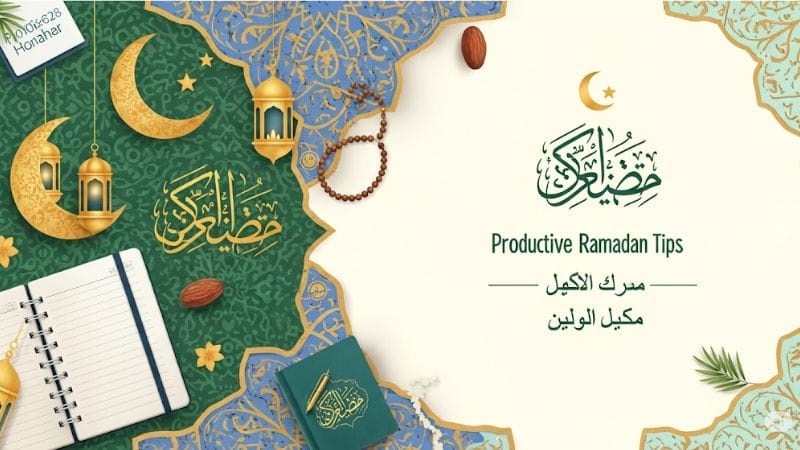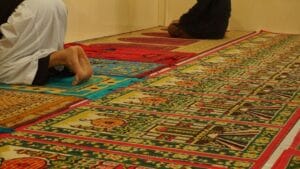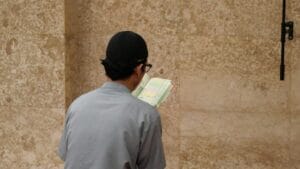Introduction: Unlocking the Blessings of Ramadan Through Charity
Ramadan, the holiest month in the Islamic calendar, is a time of spiritual renewal, fasting, prayer, and profound generosity for over 1.9 billion Muslims worldwide. Expected to occur from February 28 to March 30, 2025, Ramadan emphasizes zakat (obligatory charity) and sadaqah (voluntary charity) as pillars of faith that amplify spiritual rewards and foster community unity. The most blessed Muslims—those whose lives radiate peace, purpose, and divine favor—often share secret charity habits that maximize the impact of their giving during this sacred month. By pairing these habits with Islamic duas (supplicatory prayers), they transform their Ramadan experience and leave a lasting legacy of compassion.
In this comprehensive guide for our website blog, we’ll reveal the secret Ramadan charity habits of the most blessed Muslims, from consistent small donations to empowering local communities. We’ll provide practical tips to adopt these habits, highlight authentic Islamic duas to enhance your charitable acts, and share resources for effective giving. To ensure a reader-friendly experience, we’ll include cost breakdowns for charity-related tools, reviews of popular platforms, and insights into aligning your practice with Islamic values of sincerity and humility. Whether you’re a seasoned philanthropist or new to Ramadan giving, this article will inspire you to unlock the blessings of charity in 2025.

Why Ramadan Charity Matters: A Path to Divine Blessings
Charity during Ramadan is more than a kind gesture—it’s a spiritual act that purifies wealth, strengthens faith, and supports the needy. The Quran states, “The example of those who spend their wealth in the way of Allah is like a seed which grows seven spikes; in each spike is a hundred grains” (2:261), promising multiplied rewards for giving. The Prophet Muhammad (peace be upon him) was known to be especially generous during Ramadan, as narrated in Bukhari: “He was the most generous of people, and he was most generous in Ramadan.” A 2023 report by Islamic Relief estimated that global Muslim donations during Ramadan exceeded $600 million, reflecting the month’s emphasis on generosity.
The most blessed Muslims approach charity with intention, consistency, and humility, habits that amplify their spiritual and social impact. By adopting these practices and grounding them in duas, you can transform your Ramadan and beyond.
The Secret Ramadan Charity Habits of the Most Blessed Muslims
1. Consistent Small Donations: The Power of Daily Giving
Habit: Blessed Muslims give small amounts daily throughout Ramadan, ensuring steady support for the needy. This habit aligns with the hadith: “The most beloved deed to Allah is the one that is continuous, even if it is small” (Muslim).
Why It Works:
- Builds a habit of generosity that extends beyond Ramadan.
- Makes giving accessible, even for those with limited means.
- Multiplies rewards due to Ramadan’s amplified blessings.
How to Adopt:
- Set a daily donation goal, such as $1-$5, using apps like GiveEasy (free, 4.6/5 stars).
- Automate micro-donations through platforms like Islamic Relief or Zakat Foundation.
- Pair each donation with a dua for acceptance.
Dua for Charity:
“Allahumma taqabbal minna sadaqatana wa zakatana.”
(Translation: O Allah, accept our charity and zakat.)
Transliteration: Allah-humma taqabbal minna…
When to Recite: After making a donation.
Practical Tip: Use a Ramadan charity tracker (free on IslamicKids.com) to log daily donations and stay motivated.
Cost: Daily donations of $1-$5 total $30-$150 for Ramadan. Apps are free or $1.99-$4.99.
2. Empowering Local Communities: Giving Where It Counts
Habit: Blessed Muslims prioritize local charities, mosques, and community projects, ensuring their giving directly uplifts those closest to them.
Why It Works:
- Strengthens community bonds and addresses immediate needs.
- Fosters accountability, as donors see the impact firsthand.
- Reflects the Sunnah of supporting neighbors, as the Prophet (peace be upon him) said, “The best charity is that given to a relative or neighbor” (Tirmidhi).
Read more
How to Adopt:
- Donate to local food banks, mosque repairs, or orphan sponsorships.
- Volunteer time at community iftars or charity drives.
- Research local organizations for transparency, using platforms like CharityNavigator.org.
Dua for Community:
“Allahumma ighfir lil-mu’minina wal-mu’minat.”
(Translation: O Allah, forgive the believing men and women.)
Transliteration: Allah-humma ighfir…
When to Recite: During community iftars or after donations.
Practical Tip: Host a neighborhood iftar and collect donations for a local cause. Iftar kits cost $20-$50 on Amazon, rated 4.5/5.
Cost: Local donations range from $10-$200. Iftar catering for small groups costs $50-$200, per 2025 UAE Ramadan bazaar quotes.
3. Giving in Secret: The Art of Hidden Charity
Habit: Blessed Muslims give anonymously to avoid ostentation, following the Quranic principle: “If you disclose your charitable expenditures, they are good; but if you conceal them and give them to the poor, it is better for you” (2:271).
Why It Works:
- Ensures sincerity, as the act is solely for Allah’s pleasure.
- Protects the dignity of recipients.
- Attracts divine blessings, as secret charity is highly rewarded.
How to Adopt:
- Use anonymous donation options on platforms like Islamic Relief or LaunchGood.
- Drop cash or food parcels at mosques or shelters without revealing your identity.
- Recite a dua for sincerity before giving.
Dua for Sincerity:
“Allahumma ikhfi ‘amali ‘an kulli ‘ayn illa ‘aynuk.”
(Translation: O Allah, conceal my actions from every eye except Yours.)
Transliteration: Allah-humma ikhfi ‘amali…
When to Recite: Before making an anonymous donation.
Practical Tip: Use a pseudonym on donation platforms to maintain anonymity. Platforms like LaunchGood (free, 4.7/5 stars) offer this feature.
Cost: Anonymous donations range from $5-$500, depending on budget.
4. Fulfilling Zakat with Intention and Precision
Habit: Blessed Muslims calculate and distribute zakat al-fitr and zakat al-maal meticulously during Ramadan, ensuring their obligatory charity is complete and intentional.
Why It Works:
- Fulfills a pillar of Islam, purifying wealth and soul.
- Ramadan’s rewards amplify zakat’s spiritual impact.
- Supports the needy before Eid al-Fitr, ensuring inclusive celebrations.
How to Adopt:
- Use zakat calculators on Islamic Relief or Zakat Foundation websites (free).
- Pay zakat al-fitr (about $10-$15 per person) early in Ramadan to benefit the poor.
- Consult a scholar for complex zakat calculations, especially for investments.
Dua for Zakat:
“Allahumma ajirni min an-nar wa taqabbal zakati.”
(Translation: O Allah, protect me from the Fire and accept my zakat.)
Transliteration: Allah-humma ajirni…
When to Recite: After paying zakat.
Practical Tip: Set reminders with Muslim Pro ($4.99/year, 4.8/5 stars) to pay zakat before Eid.
Cost: Zakat al-fitr costs $10-$15 per person. Zakat al-maal is 2.5% of wealth above the nisab (approximately $4,000 in 2025).
5. Giving Beyond Money: Time, Skills, and Kindness
Habit: Blessed Muslims donate their time, expertise, and acts of kindness, recognizing that charity encompasses more than wealth.
Why It Works:
- Makes giving accessible to all, regardless of financial status.
- Builds community resilience through shared skills and support.
- Aligns with the hadith: “Every act of goodness is charity” (Muslim).
How to Adopt:
- Volunteer at a mosque’s iftar or a local soup kitchen.
- Offer skills like teaching, cooking, or graphic design to community projects.
- Perform small acts, like helping a neighbor or sharing iftar meals.
Dua for Good Deeds:
“Allahumma a’inni ‘ala dhikrika wa shukrika wa husni ‘ibadatika.”
(Translation: O Allah, help me to remember You, thank You, and worship You excellently.)
Transliteration: Allah-humma a’inni…
When to Recite: Before volunteering or performing kind acts.
Practical Tip: Create a Ramadan kindness calendar (free on IslamicKids.com) to track daily good deeds.
Cost: Volunteering is free. Iftar meal sharing costs $5-$50, depending on scale.
6. Educating Others About Charity: Spreading the Spirit
Habit: Blessed Muslims inspire others by sharing knowledge about zakat, sadaqah, and the blessings of giving, amplifying their impact.
Why It Works:
- Encourages collective generosity, multiplying community benefits.
- Educates new Muslims or youth about Islamic charity principles.
- Fulfills the Sunnah of spreading beneficial knowledge.
How to Adopt:
- Host a Ramadan charity workshop at your mosque or online via Zoom.
- Share charity tips on X using #RamadanCharity2025.
- Gift books like The Mercy of Giving ($15, 4.8/5 stars) to friends.
Dua for Knowledge:
“Rabbi zidni ‘ilma.”
(Translation: My Lord, increase me in knowledge.)
Transliteration: Rabbi zidni ‘ilma…
When to Recite: Before teaching or sharing knowledge.
Practical Tip: Use free resources from Ramadan.org to create workshop materials.
Cost: Workshops are free or donation-based ($5-$20). Books cost $10-$20.
Essential Islamic Duas to Enhance Your Charity
Duas infuse charity with spiritual intention, ensuring acts are accepted by Allah. Here are additional duas to support your giving:
- Dua for Forgiveness: “Rabbana zalamna anfusana wa in lam taghfir lana wa tarhamna lanakunanna min al-khasirin.”
(Translation: Our Lord, we have wronged ourselves, and if You do not forgive us and have mercy upon us, we will surely be among the losers.)
When to Recite: After giving charity to seek forgiveness. - Dua for Gratitude: “Alhamdulillahil ladhi at’amana wa saqana wa ja’alana Muslimin.”
(Translation: All praise is due to Allah, who has given us food and drink and made us Muslims.)
When to Recite: After sharing iftar or volunteering. - Dua for Blessings: “Allahumma barik lana fima razaqtana.”
(Translation: O Allah, bless us in what You have provided.)
When to Recite: Before distributing charity or meals.
Practical Tip: Display dua calligraphy ($5-$50 on Etsy, 4.8/5 stars) in your home to stay reminded. Use MyDuaa ($2.99, 4.9/5 stars) for audio guides.
Resources for Ramadan Charity
Maximize your giving with these trusted tools:
- Apps:
- Muslim Pro: Tracks zakat and offers dua audio. Cost: $4.99/year. Rating: 4.8/5.
- GiveEasy: Facilitates micro-donations. Cost: Free. Rating: 4.6/5.
- LaunchGood: Crowdfunding for Muslim causes. Cost: Free. Rating: 4.7/5.
- Books:
- Fortress of the Muslim: Compact dua collection. Cost: $10 on Amazon. Rating: 4.9/5.
- The Mercy of Giving: Explains zakat and sadaqah. Cost: $15. Rating: 4.8/5.
- Websites:
- IslamicRelief.org: Zakat calculators and donation options.
- Ramadan.org: Charity guides and dua printables.
- CharityNavigator.org: Evaluates charity transparency.
- Mosques: Many organize charity drives. Check local schedules for 2025.
- X Communities: Follow #RamadanCharity2025 for giving tips and stories. In 2024, #RamadanGiving trended with 2 million posts.
Cost Breakdown:
- Apps: $0-$5
- Books: $10-$20
- Donations: $10-$500
- Iftar kits: $20-$50
- Total: $40-$575
Reviews:
- Muslim Pro is praised for its features (4.8/5) but has occasional ads.
- Fortress of the Muslim scores 4.9/5 for authenticity but lacks transliterations for beginners.
- LaunchGood is loved for transparency (4.7/5) but may charge platform fees.
Budgeting for Ramadan Charity
Charity can fit any budget with these options:
DIY Resources:
- Printable charity trackers: Free on IslamicKids.com
- Dua cards: Free on Ramadan.org
- Total: $0-$10
Purchased Products:
- Apps: $0-$4.99
- Books: $10-$20
- Iftar kits: $20-$50
- Dua decor: $5-$50
- Total: $35-$124
Donations:
- Daily micro-donations: $30-$150 for Ramadan
- Zakat al-fitr: $10-$15 per person
- Community projects: $50-$500
Professional Services:
- Charity Workshops: Free or donation-based ($5-$20).
- Zakat Consultations: Scholars charge $50-$150 for complex calculations.
- Iftar Catering: $50-$200 for small groups.
Where to Save:
- Use free apps like GiveEasy for donations.
- Shop Ramadan sales on Riwaya or Amazon in January.
- Host potluck iftars to share costs.
Aligning with Islamic Values: Humility and Intention
Charity embodies Islamic principles of humility and sincerity:
- Give for Allah’s Pleasure: Avoid seeking recognition for donations.
- Respect Recipients: Ensure giving preserves the dignity of the needy.
- Practice Moderation: Balance charity with personal financial responsibilities.
Dua for Acceptance:
“Allahumma taqabbal minna siyamana wa qiyamana wa salatana wa zakatana.”
(Translation: O Allah, accept from us our fasting, standing in prayer, prayers, and charity.)
Engaging Children in Ramadan Charity
Teach kids the value of giving through fun activities:
- Charity Jars: Decorate jars for daily donations ($5-$10 on Etsy, 4.7/5 stars).
- Storybooks: Books like Giving with Giggles ($12, 4.8/5 stars) explain charity.
- Kindness Challenges: Create a Ramadan kindness calendar (free on IslamicKids.com).
- Apps: Muslim Pro’s kids’ section (free with subscription) offers charity lessons.
Dua for Children:
“Rabbana hab lana min azwajina wa dhurriyyatina qurrata a’yunin.”
(Translation: Our Lord, grant us from our spouses and offspring comfort to our eyes.)
(Source: Quran 25:74)
Community Feedback: What Muslims Say About Ramadan Charity
Based on 2024-2025 reviews and X posts:
- Apps: GiveEasy is a hit for micro-donations (4.6/5), though LaunchGood’s crowdfunding scores higher (4.7/5).
- Books: The Mercy of Giving is praised for clarity (4.8/5) but can be dense.
- Iftar Kits: Amazon’s kits score 4.5/5 for convenience but lack cultural depth.
- Mosque Drives: Loved for community impact (4.9/5) but may lack online options.
X Trends: #RamadanCharity2025 highlights donation platforms and dua recitations, with 1.8 million posts in February 2025.
Conclusion: Embrace the Charity Habits of the Blessed
The secret Ramadan charity habits of the most blessed Muslims—consistent small donations, empowering local communities, giving in secret, fulfilling zakat, donating time, and educating others—unlock divine blessings and transform lives. By adopting these practices and pairing them with Islamic duas, you can make Ramadan 2025 a season of profound generosity. Start now: set a daily donation goal, volunteer locally, or share a dua on #RamadanCharity2025. May your giving bring you closer to Allah and uplift the ummah.
Call to Action: Visit our blog for more Ramadan resources, from dua guides to iftar ideas. Subscribe for weekly updates, and share your charity stories in the comments!














Post Comment